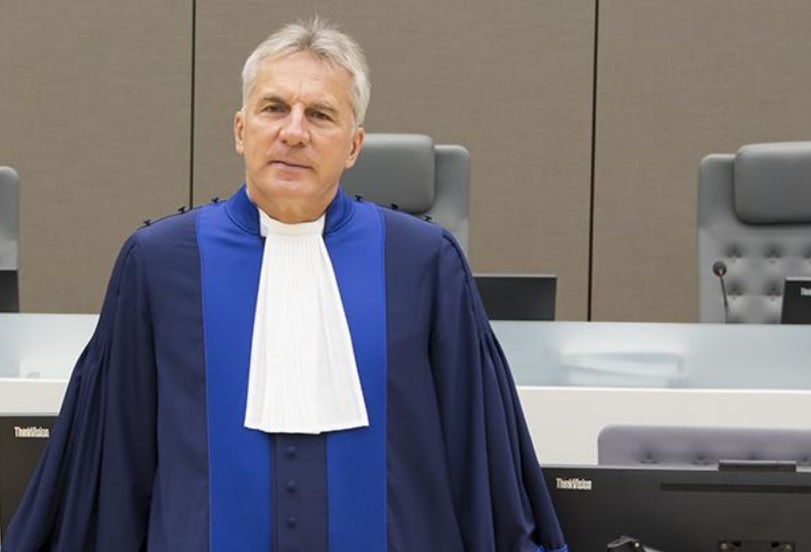The nomination of a former communist judge, Robert Fremr, for the position of Czech constitutional judge is causing more and more dissatisfaction.
Fremr’s nomination was proposed by President Petr Pavel to the Senate for approval in June, alongside Veronika Křestťanová and civil law professor Kateřina Ronovská. However, Fremr is facing criticism for having participated in a politicized trial under the former communist regime. Several dissidents and activists are now reminding him of this and calling on the head of state to reconsider Fremr’s nomination.
Pavel’s candidate has a rich past. Fremr, who has been a judge since 1982, served as a judge at the International Criminal Tribunal for Rwanda and as part of the International Criminal Court. He is also the vice president of the High Court in Prague. On the other, some accuse him of being a member of the Communist Party. It is also interesting that he issued the last death sentence in Czechoslovakia, although this was not carried out in the end.
However, Fremr is most criticized for his participation in the Olšan Cemetery case in 1988. It is described as one of the last politicized trials in Czechoslovakia. The case involved vandalism at the honorary burial site of Soviet and Bulgarian soldiers in the Olšan Cemetery in Prague. The three defendants were then sentenced by the criminal panel under Fremr’s leadership as “enemies of the socialist state and social establishment” to five to eight years in prison. The State Security (StB), the secret police force in communist Czechoslovakia, allegedly used physical and psychological coercion to obtain the confession, and it is believed that the verdict was made under the influence of the StB and in accordance with the interests of the then Communist Party.
Now some critics are blaming Fremr. The dissident John Bok sent an open letter to the president under the banner of Association Šalamoun, an association for the support of independent justice in the Czech Republic, in which he urged Pavel to change his mind.
“It is certainly indisputable that Fremr is a personality with high professional authority who can also give the impression, sometimes wrongly, that he is also associated with moral authority. It is human to err, but criminal justice is not a mistake. It is what it is, a crime. And you would appoint a criminal as a constitutional judge in this case,” he wrote in an open letter seen by Czech press.
“The fact that he is erudite and has passed through European and international judicial institutions does not change the fact that, without any moral inhibitions and knowing what methods the criminal StB uses in the investigation of so-called ‘political crimes,’ (…) he decided and condemned, as the president of the senate of the Municipal Court in Prague, on the basis of false accusations, prefabricated ‘evidence,’ and forced confessions of an innocent man to many years behind bars in inhumane conditions of communist prisons for something he did not commit. This was not a juvenile error or a mistake, but a conscious abuse of the power of a public official based on the order of communist criminals,” Bok added.
A few days ago, the writer Petr Pazdera Payne discussed the Olšan case and also criticized Fremr in his article, “The ugliest of all hippos,” on the Czech site Babylon. “Robert Fremr, the current candidate for constitutional judge, sentenced the 19-year-old Alexander Eret to six and a half years in prison on July 7, 1988. This happened as part of the trial with three so-called vandals, in the case called Olšanské hřbitovy. Today, in July 2023, during the hearing before the senators of the Czech Republic, Fremr claims there was no reason to acquit any of the three accused. At the same time, he did not mention the essential thing that A. Eret did not carry out any of the serious acts of vandalism that the other two convicts did,” wrote Payne.
Some politicians also have doubts about Fremr’s nomination. “I think that the fourth Constitutional Court of the Czech Republic could easily do without former party members. It’s a matter for the senators, but there are some doubts for me,” said the legally trained chairman of the ODS deputies, Marek Benda.
President Pavel still stands by Fremr’s nomination. According to him, he is a respected expert in criminal law, and his foreign experience speaks in his favor. The judge himself recently had to explain his past when appearing before senators. “I did not join the party out of careerism or naivety, I did not want to complicate my life,” he said to the senators. He called it a “courageous” decision and a scar on moral integrity that has faded over the years but will never go away.
Nevertheless, Fremr passed through the Senate committees. The former vice-president of the International Criminal Court (ICC) received five votes from the seven members of the constitutional-legal committee present in the secret elections. The vice president of the Municipal Court in Prague, Křestťanová, and the head of the Department of Civil Law, Faculty of Law, Masaryk University in Brno, Ronovská, each received six votes after more than three hours of debate in the constitutional-legal committee. In the Human Rights Committee, all three candidates received all six votes out of six cast.
If nothing changes, the Senate plenary will decide on the nominations in August.





